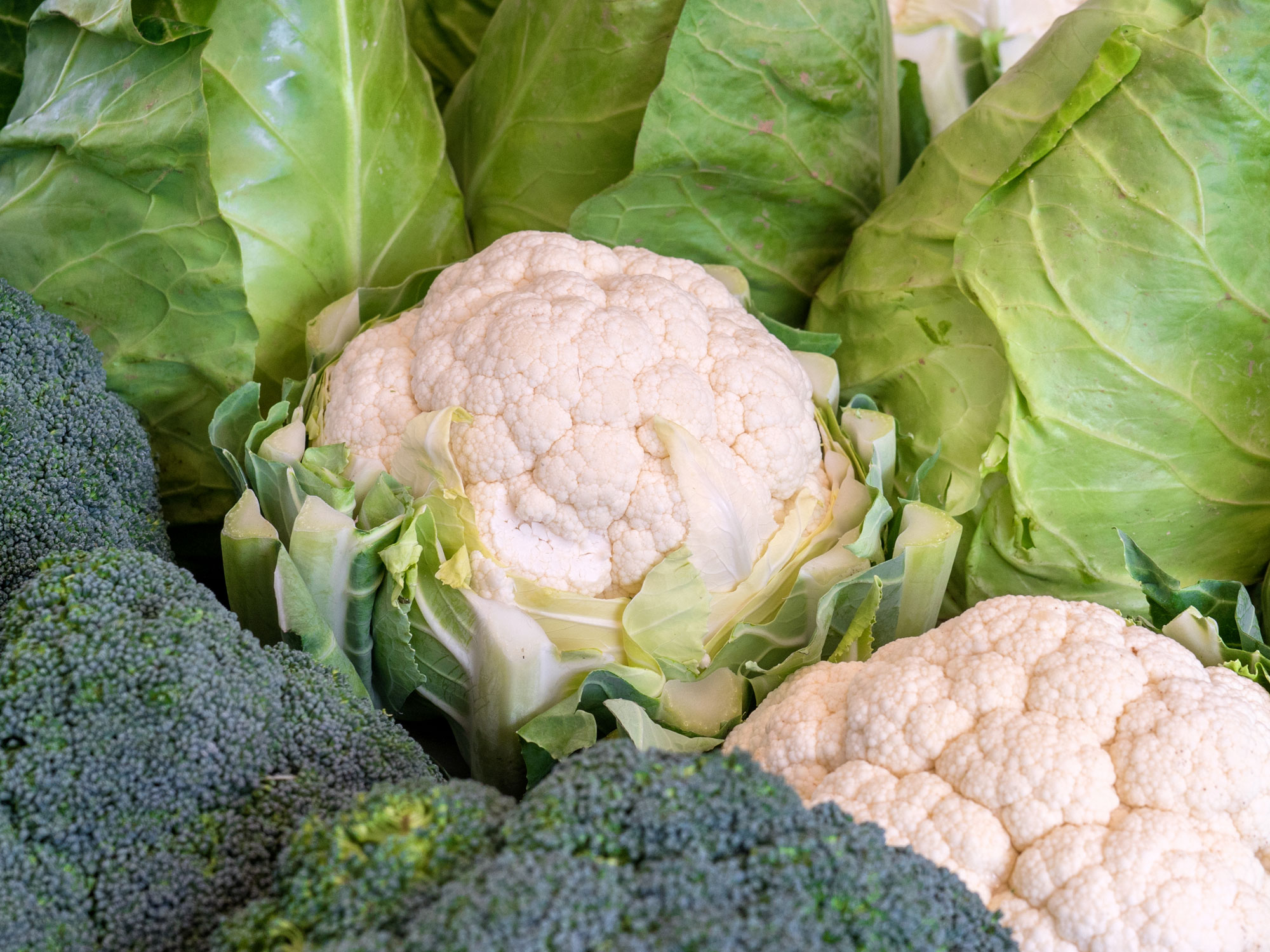Get Easy Health Digest™ in your inbox and don’t miss a thing when you subscribe today. Plus, get the free bonus report, Mother Nature’s Tips, Tricks and Remedies for Cholesterol, Blood Pressure & Blood Sugar as my way of saying welcome to the community!
Cruciferous vegetables: The good, the bad and the gas

Broccoli. Kale. Brussels sprouts.
Cruciferous vegetables… the holy grail of health.
It’s pretty much a fact of life by now that including enough of this family of vegetable in your daily diet is a sure ticket to health, and that not eating them at all is asking for bad health.
Cruciferous vegetables help prevent inflammation, heart disease, and cancer and help to detoxify the body.
But here are a few questions you may have asked yourself:
- Which ones are the best for me?
- Can I eat too much of a good thing?
- What if I don’t like broccoli? Aren’t there other kinds of vegetables that will keep me just as healthy?
All good questions that we’re going to answer here…
What’s the big deal about cruciferous veggies?
It’s true. Cruciferous vegetables have health benefits you won’t find anywhere else.
First, let’s review. What vegetables are we talking about here?
- Broccoli
- Kale
- Brussels sprouts
- Swiss chard
- Cauliflower
- Mustard greens
- Radish
- Turnip
Just to name a few…
These all belong to the Brassicaceae family, a class of vegetable that has been around for thousands of years.
Cruciferous vegetables have indisputable importance to our health, well-established by years of research:
- They contain cancer-fighting compounds. These veggies are rich in antioxidants that neutralize free radicals. They also contain compounds like glucosinolates and indole-3-carbinol that ward off cancer.
- They reduce inflammation. In a 2014 study published in the Journal of the Academy of Nutrition and Dietetics, a higher intake of cruciferous vegetables was associated with up to a 25 percent reduction in markers of inflammation among 1,005 women.
- They regulate blood sugar. The fiber in these veggies slows the absorption of sugar into the bloodstream and prevents spikes and crashes in blood sugar.
- A 2016 study with 306,723 participants linked a significantly lower risk of type 2 diabetes with a higher intake of cruciferous vegetables.
- They support cognitive function. A recent study at the Jean Mayer USDA Human Nutrition Research Center on Aging at Tufts University found that people who ate about one-and-a-half servings of green leafy vegetables such as kale per day had the cognitive functioning of people about eleven years younger, who ate no leafy greens.
Side effects of eating veggies?
You can see why there’s been a big push for people to eat as much of this healthy veggie family as possible. But it may surprise you to know that “too much of a good thing” definitely can apply here as well.
One common concern with adding cruciferous vegetables to the diet, especially if they’ve been excluded before, is the increase in flatulence. While fiber helps us stay “clean” inside, too much of it can mean digestive issues that are uncomfortable and sometimes painful.
Drinking more water and getting regular exercise can help reduce this problem.
Ironically, too much fiber can actually cause deficiencies in key minerals. That’s because fiber is a binding agent that can also bind to nutrients before the body has had a chance to absorb them. Iron, chromium, copper, zinc, and calcium absorption are commonly affected in this way.
So how much fiber should you shoot for?
The Academy of Nutrition and Dietetics suggests between 25 and 38 grams from women and men, respectively — a little less over the age of 50. And most Americans do not get near that on a daily basis, so I’d imagine that eating too much fiber to lose nutrients wouldn’t be an issue for most people.
Anything over 70 grams will cause constipation, bloating, stomach pain and probably that flatulence we’re all worried about.
Thyroid problems: When eaten raw, digesting cruciferous vegetables releases goitrogens in the intestine.
Goitrogens are compounds found in certain foods that interfere with thyroid function. They may block iodine from entering the thyroid. Without iodine, thyroid hormones are not produced.
However, you would have to eat an extreme amount of greens for this to happen. But if you have an iodine deficiency, you’ll want to be careful about this.
Other vegetables have benefits, too
While the Brassicaceae family have become all-stars, there are plenty of non-cruciferous vegetables that have similar and different benefits for your health:
The B vitamins and antioxidants in asparagus have been shown to fight 18 strains of bacteria.
The carotenoids in carrots protect your vision, guard against stroke and improve memory.
And celery helps control migraines, prevent urinary tract infections and boost the immune system.
Editor’s note: Did you know that when you take your body from acid to alkaline you can boost your energy, lose weight, soothe digestion, avoid illness and achieve wellness? Click here to discover The Alkaline Secret to Ultimate Vitality and revive your life today!
Sources:
- Cruciferous vegetables: cancer protective mechanisms of glucosinolate hydrolysis products and selenium — Integrative Cancer Therapies
- Cruciferous vegetable intake is inversely correlated with circulating levels of proinflammatory markers in women — Journal of the Academy of Nutrition and Dietetics
- Consumption of citrus and cruciferous vegetables with incident type 2 diabetes mellitus based on a meta-analysis of prospective study — Primary Care Diabetes
- 4 Signs You’re Eating Too Much Fiber (Yes, It Is Possible) — Eva Selhub, MD
- Biological Activities of Asparagus Racemosus — African Journal of Traditional, Complementary and Alternative Medicines













